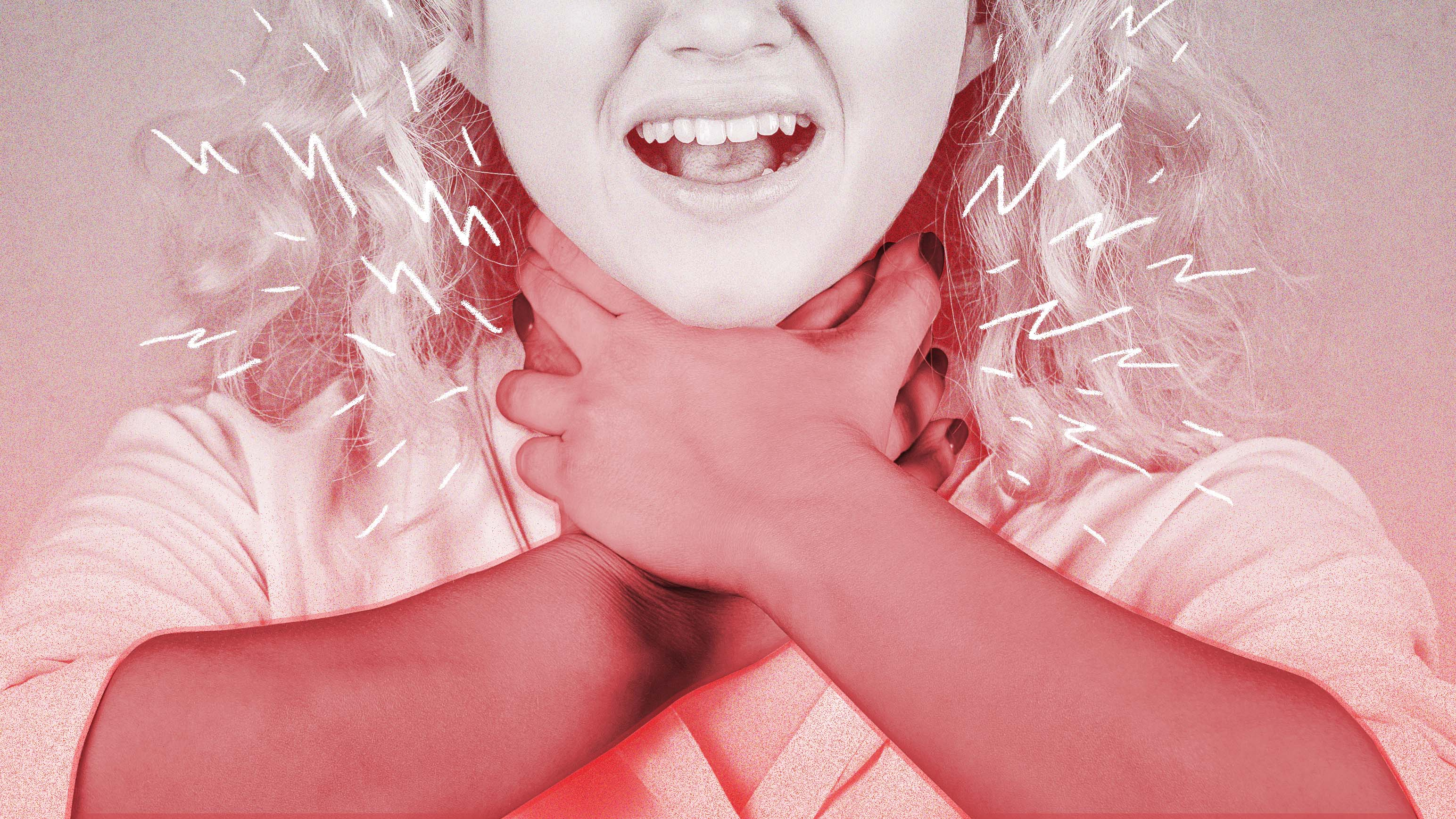What To Do If You Find Yourself Choking—and No One's Around
Every time you eat, you are gambling on your ability to eat food and survive. Honestly, we all may be taking this responsibility a little too lightly. The National Safety Council reports that choking is the fourth leading cause of accidental injury deaths in the U.S., and accidental injury deaths are the third leading cause of deaths overall. We can put a man on the moon, but we can't be trusted to chew slowly enough to not die.
Who knew the stakes were so high every time you ate leftover steak nachos in your kitchen? One moment you're standing over your sink alone in your pajamas scarfing down the nachos you squirreled away; then the next thing you know, a cold piece of steak is blocking your airway and means of continual survival. We all know the panic of realizing we may not be able to breathe and then also remembering we're not wearing cute underwear, and that is, assuredly, not how we want our legacies to end.
We are so brazen, so sure, of our abilities to eat and not die that we hold public competitions to see how much food we can eat in one sitting and we just assume this is something we will live through. And as if assuming it's all fun and games to cheat death weren't enough, at these competitions, we use foods that are the most likely to cause choking: hot dogs, one of the top human chokers; pizza, which has melted cheese and that circular crust that could get lodged in a trachea. Eating competitions are the American version of Rome's Colosseum. We're going head-to-head with a herd of buffalo burgers, and sometimes the buffalo wins.
Concerned about the safety standards and medical precautions that are enacted—or rather, not enacted—to keep our modern day gladiators safe, I called the Major League Eating & International Federation of Eating Competition. The MLE describes itself as the organization that oversees all professional eating contests, it boasts the ability to provide dramatic audience entertainment and media exposure to world-class eating events. I'm still waiting to hear back. But the MLE does provide a (very brief) safety section on its website that assures that it provides a controlled environment with safety measures at its events.
The MLE also cautions not to try speed eating at home, which is good advice, because that's where most choking incidents occur. Contrary to what I learned about how the world works from watching Mrs. Doubtfire, upscale restaurants are not the primary choking locations. In fact, none of the restaurants I contacted reported ever experiencing a choking event. So, Mrs. Doubtfire is out and Wolf Of Wall Street is in. And if you do find yourself experiencing a choking episode in your home without a Jordan Belfort around, here are tips for survival.
When something is stuck in your trachea so that you can't speak or breath, you only have around three minutes before the lack of oxygen starts to cause brain damage, and then about six minutes until you die. As Jonathan L. Epstein, senior director of science for the American Red Cross, cautioned via email, you need to act quickly, and the first thing to do is to contact 911. Even though you will not be able to speak or even make sounds, still keep the line open and allow the dispatchers to find pinpoint your GPS location and send help.
When you get a piece of food lodged in your trachea, your body assumes you're drowning and it forcefully clenches itself closed, to help you survive. But you're not drowning, and you're also not getting oxygen to your brain. So you will need to start performing abdominal thrusts on yourself. And you can't be meek about this. Make a fist with one hand, place it above the navel, and use your hand to thrust your fist up and in to your abdomen. You can also find a counter top, back of a chair, or railing, bend over it, pressing firmly against and up into your abdomen. Continue with this until you can dislodge the obstruction or until emergency help arrives.
Granted, there are steps you can take to avoid this nightmare situation:
Eat slowly.
As Jake Manny, owner of fried chicken restaurant Sisters And Brothers in Seattle, wrote via email, "Slow down. Don't swallow the bone." It's important to take your time while eating. I understand that sometimes we're all in a rush, or we still have imprinted on our DNA that our food is going to be hijacked from us if we don't eat it and eat it fast. Just take a deep breath—because you don't want this bite to be your last—and eat slower.
Mince bites, not words.
Cut up smaller portions for yourself and others. A large majority of those affected by choking are younger than 14 and older than 70, when there is less muscle control and less time spent on chewing. Help everyone out by cutting up small bites, so the size of the food doesn't match the size of your trachea.
Liquid lubrication.
Have a glass of anything—water, milk, juice, beer, wine, anything—near you when eating. The liquid will assist in dislodging potential obstructions.
And be careful out there. You have more than three chances a day to do a good job at eating, so make sure to nurture yourself and not hurt yourself.
